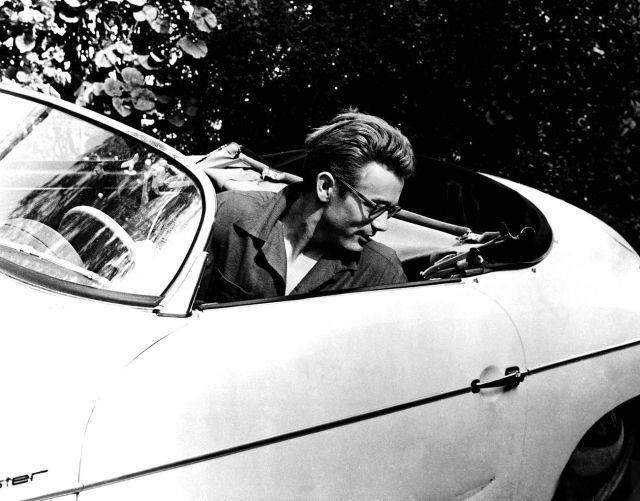
Thanks to the capabilities of artificial intelligence, celebrities like James Dean can be resurrected as digital clones.
However, this advancement raises concerning questions about the rights we retain after death.
Many actors aspire to leave behind a lasting legacy in their careers, but only a few manage to achieve it, given the challenging nature of the show business industry.

Those who do succeed, however, can attain a form of immortality on the silver screen, with their names forever illuminated in the spotlight.
James Dean, the renowned American film actor who tragically passed away in a car accident in 1955, is one such icon.
Despite starring in just three highly acclaimed films, his name and talent have endured throughout the decades.
Surprisingly, nearly seventy years after his death, Dean has been chosen to play the lead role in an upcoming movie titled "Back to Eden."
In this production, a digital clone of the actor has been generated using artificial intelligence technology akin to that employed for creating deepfakes.
Through this AI-powered technology, the digital James Dean will grace the screen, interacting and performing alongside other actors in the film.
Timeless icon James Dean photographed during his visit to Palm Springs in March 1955.
— Historic Vids (@historyinmemes) July 15, 2023
James Dean, born on February 8, 1931, was an American actor whose life and career were tragically cut short, yet his impact on Hollywood and popular culture has endured for decades. Despite… pic.twitter.com/NdTmO3G8Bw
The technology behind this digital cloning is at the forefront of Hollywood's computer-generated imagery (CGI) advancements.
However, it has also sparked significant concerns among actors and screenwriters, leading to the first Hollywood strike in 43 years. These individuals worry that AI algorithms could potentially replace them, sacrificing creativity in favor of maximizing profits, BBC reported.
Prominent figures like actor Susan Sarandon have expressed their anxieties about AI's potential impact on their profession.
Sarandon voiced her apprehension, warning that AI could lead her to "say and do things I have no choice about," raising ethical and artistic concerns within the entertainment industry.
Dean's digital revival is not the first instance of deceased actors making appearances on screen through advanced digital technology and Hollywood's creative techniques. Celebrities like Carrie Fisher, Harold Ramis, and Paul Walker have notably reprised their iconic film roles posthumously.
Recently, Brazilian singer Elis Regina also made a virtual comeback for a car advertisement, where she was seen singing in a duet with her daughter, Maria Rita.
These portrayals, often referred to as "passive flat screen, 2D" representations, bear a resemblance to deepfakes, according to Travis Cloyd, the CEO of immersive media agency WorldwideXR (WXR).
Interestingly, this is the second time James Dean's digital clone has been considered for a film project. In 2019, it was initially planned to resurrect him in CGI for a movie titled "Finding Jack." However, the project was later cancelled.
Cloyd confirmed to BBC, however, that Dean will instead star in Back to Eden, a science fiction film in which "an out of this world visit to find truth leads to a journey across America with the legend James Dean."
Imagine traveling back in time to the 1970s and attempting to explain concepts like "googling," "URLs," or the advantages of "fibre-optic broadband" to someone. It would likely be a challenging task, as these terms would be entirely unfamiliar to them.
With each significant technological revolution, a new wave of language accompanies it, which we all must learn. Eventually, this terminology becomes so ingrained in our daily lives that we forget we were once unfamiliar with it.
The same holds true for the next major technological wave – artificial intelligence. Understanding the language of AI will become crucial as we, ranging from governments to individual citizens, navigate the potential risks and benefits that this emerging technology may bring.
While deceased celebrities may have some limited protections in certain jurisdictions regarding the commercial use of their image and likeness, ordinary individuals may have much less control over how their digital legacy and likeness are utilized after their passing.
In the United States, there is minimal legislation safeguarding the deceased from being digitally resurrected for personal purposes.
Once a person passes away, virtually anyone can input their publicly available digital data into AI software to create a "deadbot" or an interactive AI avatar.
Some states, like New York, have more extensive postmortem protections in place, which prohibit the exploitation of individuals' identities for certain malicious intentions.
However, there are doubts about how effectively these protections are enforced and upheld, as pointed out by some experts, such as Lee.
Consequently, there remains a significant concern about the potential misuse and lack of control over one's digital legacy after death.
© 2025 Latin Times. All rights reserved. Do not reproduce without permission.




